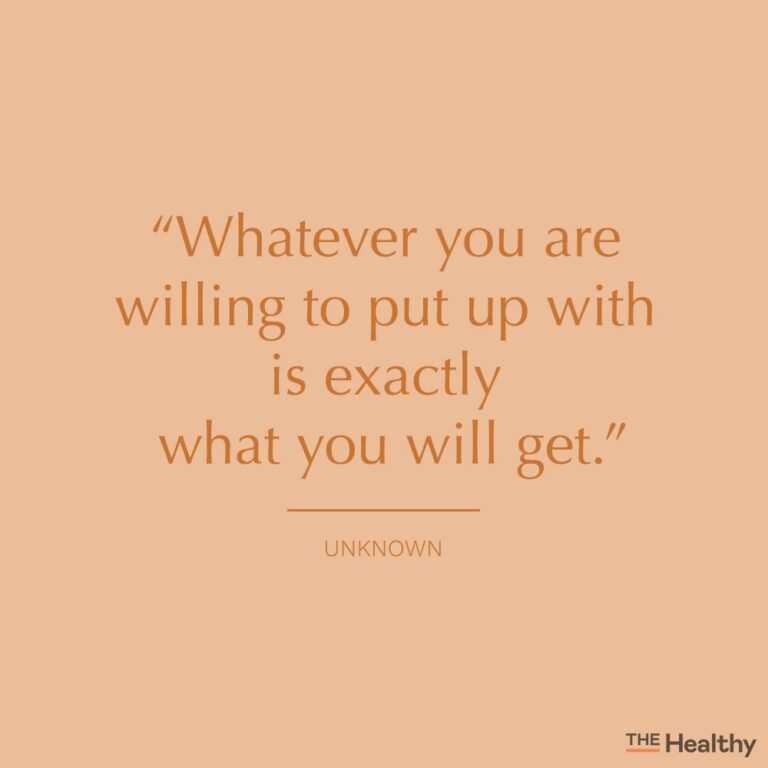
Boundaries allow us to define personal and physical boundaries that will help us make informed decisions about our lives. We will place boundaries in our relationships that are material, psychological, and psychological. Let us know where you are at the beginning and where you are at the end.
Our borders are strictly “No Trespassing!” It isn’t as clear as a sign to the contrary. Depending on what we accept, we can teach others how to treat us. This is why we need to set the example. Personal boundaries are important for our safety, health and security relations.
Not a sign of a breakup.
People around us can feel abandoned or rejected if we create boundaries. Let them be. Know that boundaries are crucial to a healthy and lasting relationship.You should remind them that they are the limit.
If you are interested in feel tiredIf you feel exhausted and unsatisfied after a meeting, phone call or meeting with family, friends, or any other person, it is likely that your boundaries were violated. Infringing on your personal boundaries can result in stress exposure, which can then lead to some health problems.
There are two types of boundaries: healthy boundaries and unhealthy boundaries.
We can determine if our emotional boundaries are being crossed. Friendships can be either healthy or unhealthyWe can do the right thing.
What are healthy boundaries, exactly?
- Self-development: Take time to do it
- Personal values protection
- When someone is violating your boundaries, be aware and speak out
- Be confident in your decisions
- To find out who you really are
- Know what you want
- Respect yourself
- Never allow anyone to take advantage of your generosity and you
- Being able and able to say no undesirable situationsContact us for offers, gifts and information
How can we recognize unhealthy boundaries?
- Trusting no one or everyone unconditionally is not something you can do.
- Let others guide and define your reality
- Struggling to please someone unconditionally in order to be accepted
- You can give the other person what they want without condition.
- Your entire private life revealed at your first meeting
- Expecting others will meet your needs
- Emotional abuse, emotional exploitation
- Physical and sexual abuse
How can we make healthy boundaries?
Let’s now look at how we can set boundaries. It’s about how we want and don’t like to be treated. When setting boundaries, we must identify our emotional, physical and spiritual limits. This is not just for emotional relationships, but all relationships. We also need to consider our values and needs. The first step to setting healthy boundaries is to identify your limits.
It is important to have a healthy and clear way of communicating with others. It is vital to Open communication with peopleConfidently and firmly express your limits. It is time to evaluate your communication skills, identify the areas that need improvement and provide training support. You can improve your communication skills by seeking out expert support.
Communication is only possible when you listen. You cannot communicate effectively if you do not listen. Actively listening You communicate with the other person in a non-reciprocal manner.
Establishing healthy boundaries is key to effective and profitable communication
- Clearly state what you want and don’t want. Avoid using generalizations, allusions, and vague language.
- Your Body language is essential. Be confident Body language (Especially eye contact).
- Clarify what your actions are. Example:I need, I feel, I want. etc. Use “I”, statements.
- Before you take any action, make sure that both sides can communicate openly and rationally.
- When communication becomes hostile, abusive, or degrading, you should know when to leave.
- Be a good listener and learn how to listen
- Express your feelings without trying to find the guilty or victim.
- Do not speak for someone else.
- Recapitulate if you make a mistake and never forget the power of apologizing
- Communicate with confidence
- If you are in a situation that is not right for you, be firm and consistent with your attitude.